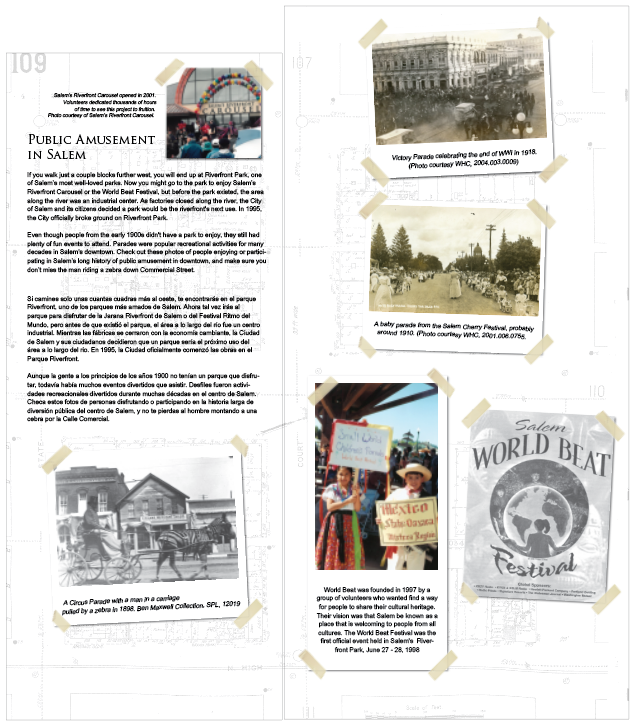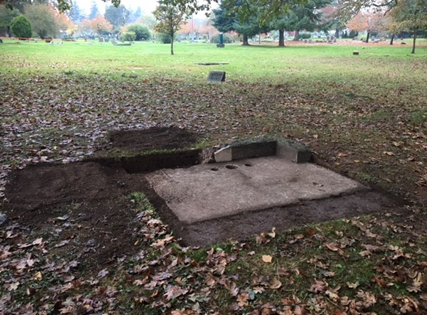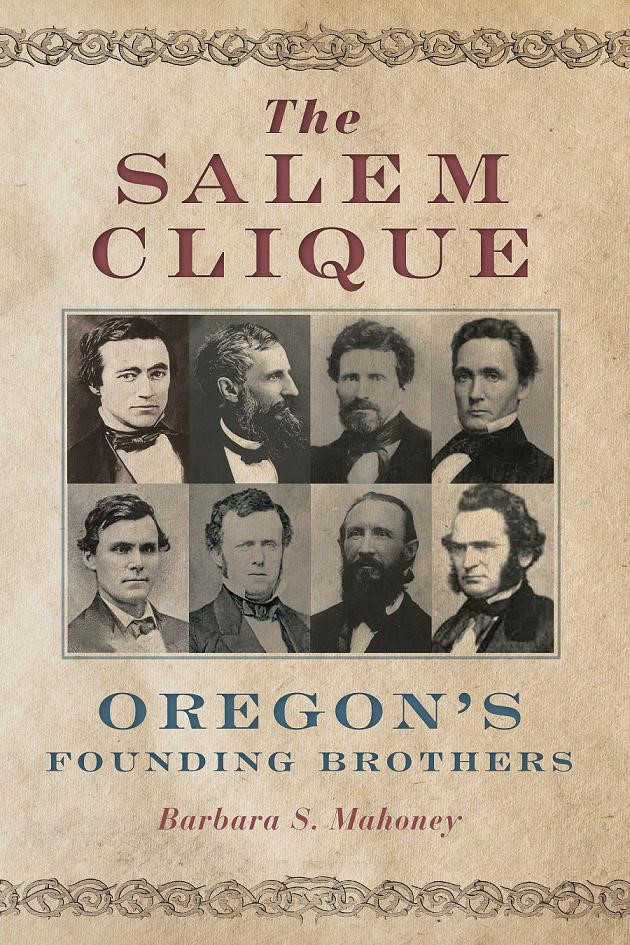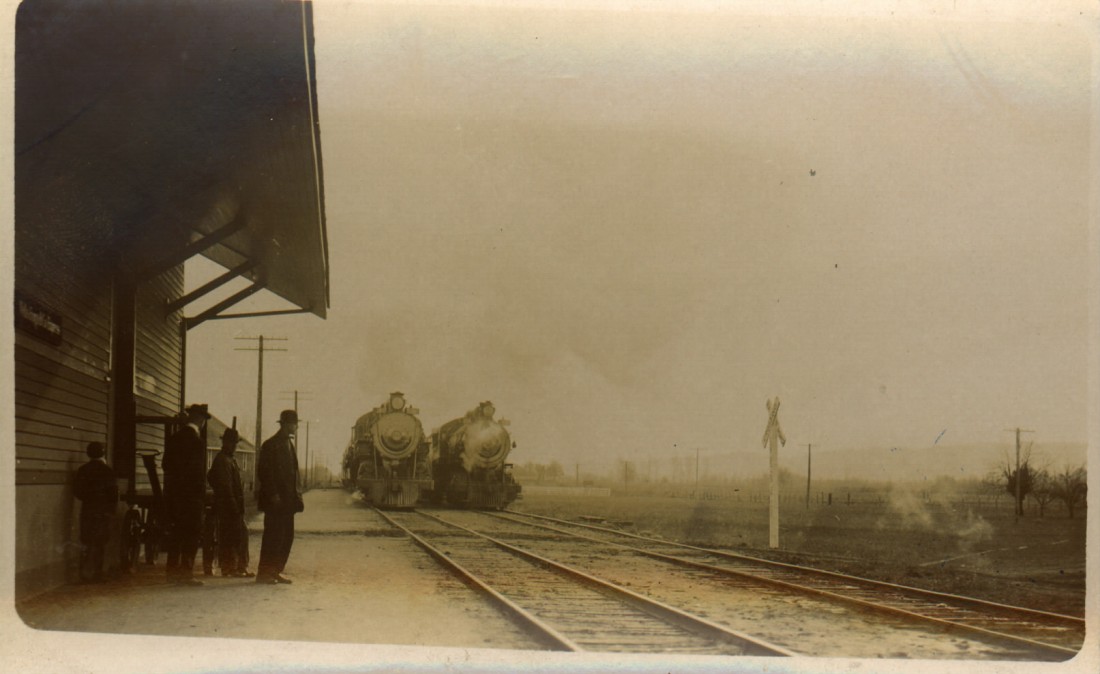Spotlight on the Pioneer Cemetery- April 2, 2022
In 2017 Salem’s Historic Landmarks Commission (HLC) established a goal to learn more about Salem’s Chinese heritage. Initial research was based upon a single 1963 photo published in the Oregon Statesman newspaper of a “shrine” uncovered in cleanups of Salem’s Pioneer Cemetery. Archaeological excavations were conducted in 2017 and 2018 which revealed a flat cement slab with three holes with a partial raised section along one edge and a marble tablet with a Chinese inscription. The uncovering led to more questions about the feature’s historical use which the HLC’s Chinese Shrine Advisory Committee directed. The project received national recognition in January by the Society for Historical Archaeology (Mark E. Mack Community Engagement Award).
Archaeological excavations in 2018 resulted in the recovery of brick and a metal grate, most likely associated with a burner utilized near the table. A visit to China to the region where Salem’s Chinese population came from resulted in finding similar tables.
We believe the Shrine was constructed as a funerary table in order to provide the Chinese a place to leave offerings for their family members, as well as for those who had died and did not have any family here. Many Chinese who came to Salem were sojourners, here to work temporarily. The inscription on the Shrine’s marble tablet has been translated to mean “To the Tomb of an Unknown Friend.”
Ann Lossner shared Suie Sun’s childhood memories of this traditional Chinese Festival celebrated at Salem’s Pioneer Cemetery:
“In the Chinese section there was a large slab, raised to make a table. At the back was a raised portion filled with dirt; next to it was an open oven.” Candles and sticks of punt were lit. “Then the men knelt and recited prayers for the dead. Rising, they folded each specially shaped paper around a narrow strip of paper in an intricate manner, bowed three times, lighted the paper from the candles, bowed again, and tossed the burning paper into the oven. This was repeated until there was a blazing fire. The papers represented cloth for the departed spirits to use in making clothing. When the fire was hot enough, needles and thread were thrown in too.”
The memories continue with tasty details:
“The Chinese whisky was poured into tiny glasses and placed between sticks of punk. The hardboiled eggs, the barbecued pork, boiled chicken, pots of tea, and bottles of rice wine were placed on the table and dedicated to the dead. When the ceremony was concluded, some bits of food were scattered around the cemetery to appease the devil or evil spirits.”
Sun recalls that most of the food was taken back into town to the store that was “designated as the headquarters” for the day and people shared the food.
Please join us at Salem’s Pioneer Cemetery on Saturday April 2, 2022 at 11:00am to celebrate Salem’s Qing Ming Festival. View the program here.







 Make sure to join the Salem Art Association for their 19th Annual Clay Ball: Silver Screen. This event will take place on Saturday, February 24th from 5:30-10pm at the Salem Convention Center. Featuring a charity auction and gourmet food and wine, this fabulous annual fundraiser will be one for the ages!
Make sure to join the Salem Art Association for their 19th Annual Clay Ball: Silver Screen. This event will take place on Saturday, February 24th from 5:30-10pm at the Salem Convention Center. Featuring a charity auction and gourmet food and wine, this fabulous annual fundraiser will be one for the ages! 